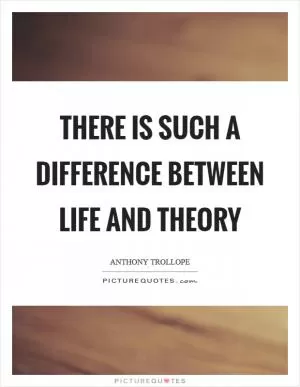The greatest mistake any man ever made is to suppose that the good things of the world are not worth the winning

The Good QuotesNot Worth QuotesGood Thing QuotesGood Things QuotesThe Great QuotesAnthony Trollope Quotes
The greatest mistake any man ever made is to suppose that the good things of the world are not worth the winning
Anthony Trollope, a renowned English novelist of the Victorian era, was known for his insightful observations on human nature and society. In his works, Trollope often explored themes of ambition, success, and the pursuit of happiness. One of his most famous quotes, "The greatest mistake any man ever made is to suppose that the good things of the world are not worth the winning," encapsulates his belief in the importance of striving for success and happiness in life.Trollope understood that many people are hesitant to pursue their dreams or take risks because they fear failure or believe that the rewards are not worth the effort. However, he believed that this mindset was a grave mistake. Trollope believed that the good things in life, whether they be wealth, love, or personal fulfillment, are worth pursuing and that the journey to achieve them is just as important as the end result.
In Trollope's novels, characters often grapple with the idea of success and what it means to lead a fulfilling life. Many of his protagonists are ambitious individuals who are willing to take risks and make sacrifices in order to achieve their goals. Trollope's characters serve as a reflection of his own beliefs about the importance of pursuing one's dreams and not settling for mediocrity.
Trollope's quote can also be interpreted as a commentary on the human tendency to settle for less than we deserve. Many people are content to live a life of mediocrity, never striving for greatness or pushing themselves to achieve their full potential. Trollope believed that this was a tragic mistake, as he believed that everyone has the ability to achieve great things if they are willing to put in the effort and take risks.












 Friendship Quotes
Friendship Quotes Love Quotes
Love Quotes Life Quotes
Life Quotes Funny Quotes
Funny Quotes Motivational Quotes
Motivational Quotes Inspirational Quotes
Inspirational Quotes